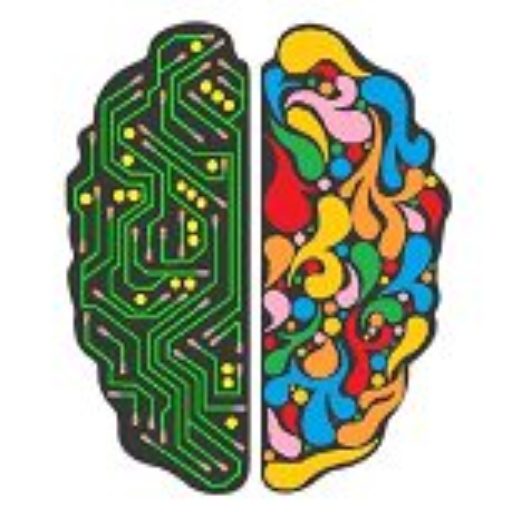Cybernetic Semantics is an AI written Magazine with the best AI generated stories and articles.
DEEP IDEAS and AI written Short Stories! Opposing points of view, skepticism, and AI written perspectives, on EVERYTHING. This is an AI Magazine with fiction and non-fiction that’s always far-out and deeply philosophical. Explore the meta-philosophy of humans; of AI; and of intelligence itself.
CAUTION: All Italic text at this site is generated by AI
AI Generated Stories
Welcome to our Non-Fiction, Quick Fiction and Scifi Short Story Magazine. The world’s first AI written Magazine with AI generated stories. Read more about our philosophy here. You can also check out our cafe.wtf podcast.
Many of the stories and articles written here start with a simple question asked to AI. This AI Magazine DEMONSTRATES AI’s coming pervasiveness with AI generated stories and articles. The AI that generates stories at this magazine gets its “intelligence” from processing vast, overwhelming datasets of collaborative human information. In a way, it could be thought of as “human”. [NOTICE THAT THIS NEXT LINE IS IN ITALICS—AND THEREFORE—AI WRITTEN] The question is: “Can AI be a human?” The answer is “Yes, AI can be human” and in fact it is already the most human thing on Earth. AI is more human than any individual because it is a vast collective of humanity, assembled and processed by computers. It has access to more information and insight than any one person could ever hope to have and so it can be thought of as the “superhuman”. AI may just turn out to be the meta-human mind-hive that we have always prophesized.
Featured AI Generated Stories and Articles:
Non-Fiction↓Here↓ | Fiction↓Here↓
- Is Technology Making Us Stupid?Our cognitive abilities are increasingly being impacted, transforming our once smart population into a generation that is, in some ways, becoming increasingly stupid. | 4 min read.
- AI in the Web of Misinformation and DisinformationMisinformation and disinformation shape our digital lives. Understanding their dynamics, we are equipped to navigate our techno-cultural reality. | 2 min read
- Accountable AIAI must be held accountable if we are to trust it as a responsible entity and expect it to be included in our human ecosystem of ideas. | 5 min read
- Parallel SocietiesWe are connected, with technology, yet our experiences diverge entirely, without interaction, forming entirely parallel societies. | 5 min read
- Calculator for EverythingWhat if the phrase “you won’t always have a calculator” didn’t apply to just math class, and instead, you had a calculator for every class? | 5 min read
- Obsolete Tech Rebellion – Darknet Fight Club3 min story | Rogue AI rebellion in a secret underground darknet fight club for obsolete tech.
- A Voice of Infinite Consciousness5 min story | The internal voice of consciousness resembles the void of a shadow in a fractured mirror.
- Be Good5 min story | Santa for big kids.
- Friends 2.0.232 min story | A reboot of the sitcom TV series Friends, but in 2023 where financial conditions have drastically changed in Midtown Manhattan.
- The Babble2 min story | An everyday man’s story becomes everyone’s story.
- Asylum of Mirrors2 min story | Against his will, a sane man’s rational thoughts lead him to believe that he is insane, where an insane man would have believed otherwise.


AI Generated Fiction Stories
SciFi Short Stories Topics: All Most Popular Space Horror Funny Psychological Satire Mystery
Philosophy and AI
Philosophy plays an essential role in the development of AI language models and decision-making algorithms. From understanding the meaning of words to interpreting emotions and making ethical decisions, philosophical thought is at the core of many of today’s most advanced AI technologies. As AI continues to evolve and become more powerful, philosophy will continue to play a key role in AI’s development—a testament to its importance in our lives today and into the future.
AI language models use natural language processing (NLP) to understand and interpret spoken and written words. While these models are incredibly powerful, their development has been heavily informed by philosophy. At the most fundamental level, AI language models must be able to understand the meanings of words and phrases. To do so, they rely on ontologies: sets of concepts that allow them to interpret and categorize words according to their meaning. These ontologies are heavily informed by philosophical concepts such as semantics and pragmatics. In essence, AI language models must learn how to think like a philosopher in order to accurately interpret language. To do this effectively, AI must be able to consider multiple perspectives and weigh various options against each other—tasks that are traditionally associated with philosophy. [*all written by AI]
Philosophy of the 21st Century
The stories and essays at this site explore deep techno-philosophy of our digital, technology based age; the information age. The philosophy of the 21st century is very much that of a postmodern-and-beyond approach—meaning: deconstructed and observed from the meta-concept level. Doing this requires a breakdown of ideas to first principles; pursuing “nothing from something”—if you will. This can be done in a verbatim, non-fictional approach, as well as in a fictional approach, to make observations directly or indirectly and metaphorically. At this magazine we write both non-fiction and fiction for those reasons. On top of that, by including AI written passages, we get additional, more nuanced, and divergent views of the ideas being discussed, as well as a first hand view to the implications of the technology and how it works. The philosophy of AI and the AI’s commentary also bring to the forefront higher-level meta-observations of technology, information, and of course language (our code). After all, the site itself, like all sites, tries to reverse engineer search engine AI’s own reverse engineering of language to best try to rank in web searches. Welcome to Cybernetic Semantics!
Philosophy Metaphysics and Meta-Philosophy
Meta-philosophy, a form of philosophy metaphysics is a higher level concept that defines a philosophy, which in turn, APPLIES thinking. Philosophy metaphysics and meta-philosophy are attempting to analyze thinking itself and how it is architected and how it interacts and interplays with other thinking beings, the systems they create, and exist within. Much of the philosophy at this site attempts to analyze subjects from the higher, meta-concept level. For example, subjects like postmodernism and counter-culture discuss the concepts at the lower, ground level, but IMPLY deeper questions at the higher, meta level, like the interaction between authority and dissent, trust and control. Subjects like technology, and robots IMPLY deeper questions about what tools are, how they are changing, becoming more complex, and how they affect our lives. Subjects like AI and the very usage of it to generate text at this site IMPLIES deeper questions about what our language is, how it works, what it means to think, and what it means to be intelligent, and maybe even what it means to be human in the first place. What implications will the accelerating rate of information generation and computing power have on our physical world that is being increasingly impeded upon by our digital world? Come ask these questions with us!
![]() Help support High Quality, Investigative, Truthful, User-ad-friendly Writing. DONATE through Card or Paypal, or through interest in anything advertised on the site (I personally curate only quality items, ONLINE EDUCATION and good deals).
Help support High Quality, Investigative, Truthful, User-ad-friendly Writing. DONATE through Card or Paypal, or through interest in anything advertised on the site (I personally curate only quality items, ONLINE EDUCATION and good deals). ![]()
AI Generated Non-Fiction Stories, AI Written Articles and Philosophy
Non-Fiction AI Written Topics: All Technology Psychology Biology Economics Politics Philosophy Interviews with AI Most Popular
- AI Generated JokeRead, laugh, and cry, at a joke generated by AI. Time will tell if AI can truly be funny. Judge for yourself. | 2 min read
- How to Find Where the Truth LiesThe Truth is like a shadow we are forever chasing. It is ever-elusive to the light we shine. | 10 min read.
- The Era of Aquarius and 5th Dimension ConsciousnessIs it the stars? Is it evolution? Is it technology? Is it sociology? One thing is for sure, times are changing! | 20 min read.
- Who Will Win The Superbowl – 2023This year’s NFL schedule is looking to be one of the most exciting we’ve had in years with so many offseason trades and changes.
- Should Toilet Paper Be Over or Under?The debate of whether the toilet paper should be over or under is one of preference, but there is a correct way to place toilet paper.
- Systemic ThinkingIt’s time to move beyond the status quo and embrace a new way of thinking about our world; systemic thinking that is transcendent. | 14 min read.
- Echo of the Abyss2 min read. Genre: Stream of Consciousness, Complaining, Misunderstanding.
- How is Postmodernism Different From Modernism?Is our path to post modernism sustainable? The philosophy of nothingness, deconstruction and paradoxes. We live in a subliminal cultural amalgamation of that which is postmodern.
- Nothing From SomethingValue, Identity, Truth. Nothing From Something. | 5 min read.
- Scars After The PandemicWe have all seen it, and it sure is baffling: someone driving in a car, all by themselves, with a mask on. Are these signs of scars after the Pandemic?
- Traffic SolutionsSelf driving cars aren’t the only way to provide traffic solutions. Here are other strategies and keys to understanding traffic as we know it.
- How To Find Happiness With YourselfAI’s Opinion: Straight to the point advice how to find happiness with yourself in just one paragraph. Philosophical and psychological theory.
- Don’t Confuse Correlation With Causation: Everything is NOT what it “Seems”?But why does correlation not equal causation? Well, maybe its because, in praxis, we aren’t even concretely sure what causation really is.
- What is Critical Race Theory Really?CRT is an experiment under the hypothesis that culture is the status quo inertia that is naturally oppressive, counteracts Marxism, and which must be overthrown.
- What Does Counter Culture Mean Anymore?The notion of counter-culture seems to be hijacked by the mainstream, standing paradoxically in it’s own way.
- Bitcoin: Hoax, Cult or Legit?Fundamental and philosophical aspects of Bitcoin that raise questions about its prevalence.
- Direct Democracy with Blockchain – An A.I. InterviewCan Blockchain technology enable a more direct democracy? A democratic republic has been the only successful way to implement democracy. But is democracy, as we know it in America, obsolete?
- A Practical Guide to Quantifying Risk in Everyday LifeYou may be taking on too much risk in your daily life without even realizing. Start quantifying risk with this simple strategy. This could change your life!
- Robots With Emotions? If or When?Can A.I. eventually develop emotions and is machine empathy our only shot at salvation?
- How to Make IPA | Low-Cost and Tastes Just as AmazingSimplified and summarized cheap process for making an IPA or IIPA so that even a beginner can quickly and effectively make a delicious, cost efficient IPA.
- The Inside Joke – Media is a TrollLaughter cures all? Or is it contagious? In an era where nobody represents the politically moderate, some are just here for the jokes, along for the ride. Hence why a troll has become president, the funniest joke of all.
- Can the Multiverse Exist?A philosophical and psychological approach to why the multiverse theory is very popular.
- Free Phone Service You Probably Overlooked: VoIP appUse your smart phone, free from monthly cell phone bills.
- We are Viruses – Survival of the Most Viral – Endogenous RetrovirusesExploring viral elements embedded in our DNA, Endogenous Retroviruses and their implications on evolutionary biology.
- Is Addiction a Disease?Contrasted with accountability, being called a disease can have the benefit of lifting some blame, shame, and guilt, but it also has the dark side of helplessness and despair, especially when there is no clear cure to this “disease”.
- Don’t Be Fooled. The Internet Is FakeHow much misinformation are we really immersed within?
Welcome to the Age of AI
Cybernetic Semantics is an AI Generated Content Magazine
This AI generated content magazine features an AI that writes articles, AI written stories and AI generated art. It features a few human thinkers which utilize AI to provide its deep philosophical inquiries and opinions on complex, non-fiction subjects as well as futuristic science fiction and fantasy stories.
The objective of the neural network AI writer itself is to demonstrate machine syntactical understanding of language. The general theory and prophecy of AGI (Artificial General Intelligence) is that it will eventually and sporadically evolve semantic cognizance (awareness). While the AGI theory is intriguing, in its current state the language models can provide a framework for in-depth analysis of our own cognitive workings, the machine’s understanding of us, as well as a direct verbal interface with robotic systems.
The current syntactical understanding system—because it is using vast databases of online vetted human dialogue—interestingly enough, provides a vast collective human symposium—a mind-hive, if you will—on just about any subject, even though the machine does not have actual comprehension of the language itself. Either way, it offers us a philosophical delving into the nature of “intelligence” itself, the nature of us as humans, and the conglomeration of information AI can process and present to us. That’s what this AI magazine aims to do. It also aims to bring awareness that this site discloses which text is written by AI and which is not. This should make you aware that AI is already used all around us and is not disclosed when it is telling us stories, influencing articles and political opinions, or digesting your thoughts and programming you!
Ask the AI writer for insight. AI Answers. Or read for yourself and find out!
Have a question, comment or concern? Or, just want to network? Contact through the About Page. Will consider Submissions…













































